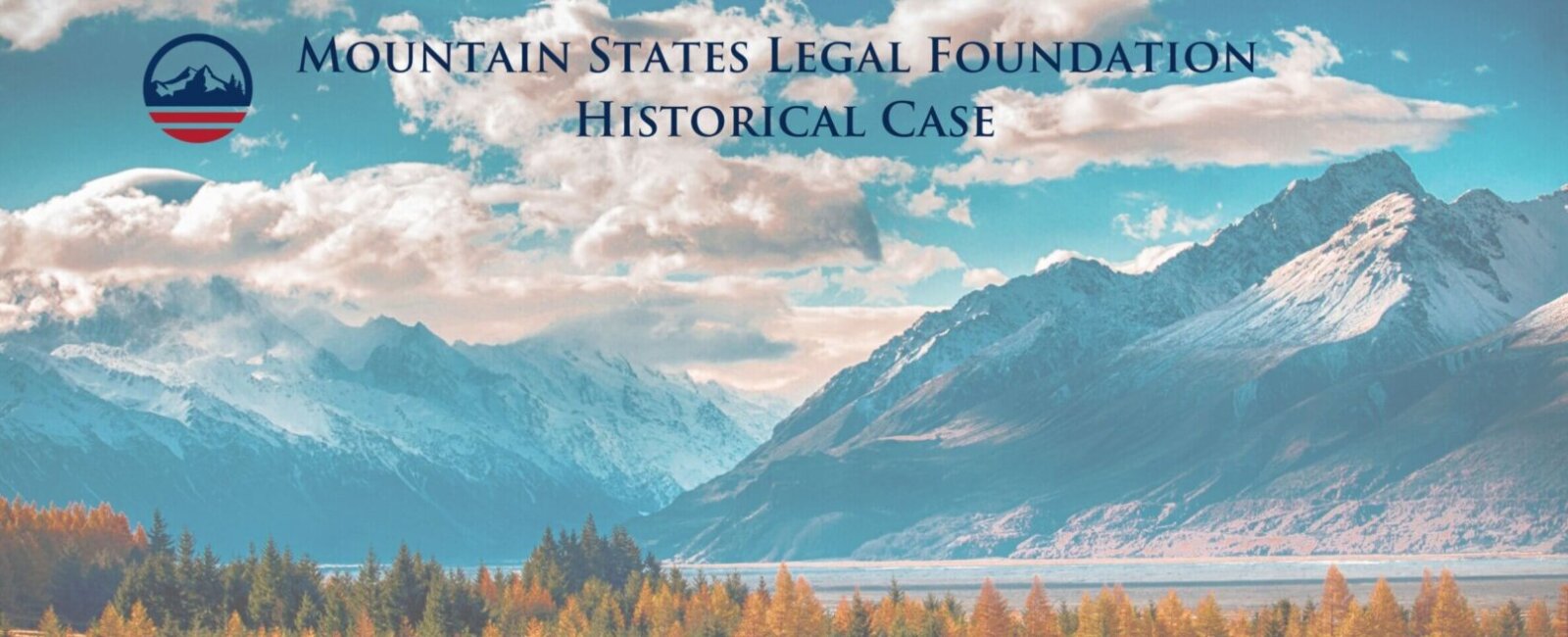Case Summary
Issue:
Whether the U.S. Forest Service’s mere receipt and review of a hardrock miner’s notice of intent to exercise rights granted to him by Congress in the Mining Law constitute “agency action,” which triggers the consultation requirements of the Endangered Species Act?
Plaintiff:
The New 49’ers, Inc. and Raymond M. Koons
Defendant:
Karuk Tribe of California
Amicus Curiae:
Northwest Mining Association (NWMA)
Join the Fight
Since 1977, MSLF has fought to protect private property rights, individual liberties, and economic freedom. MSLF is a nonprofit public interest legal foundation. We represent clients pro bono and receive no government funding. Make your 100% tax deductible contribution today and join the fight.
Case History
The Karuk Tribe of California is a federally-recognized Indian Tribe that pursues environmental litigation opportunities involving streams and rivers in the Klamath National Forest. In October 2004, the Karuk filed a lawsuit in California federal district court charging that the process used by the Forest Service to review Notices of Intent (NOIs) by miners to use suction drilling to mine their own claims is “agency action” under Section 7 of the Endangered Species Act (ESA) and triggers the Forest Service’s duty to engage in interagency consultation. The miners whose NOIs were challenged intervened in the lawsuit.
In July 2005, the district court rejected the Karuk’s contention that the Forest Service’s receipt and review of a NOI triggered the ESA’s consultation requirement; the Karuk appealed. In April 2011, a divided panel of the Ninth Circuit affirmed the district court’s decision. After granting the petition for rehearing filed by the Karuk, a divided en banc panel held that the Forest Service’s NOI process, even when it results in a determination that a plan of operations is not warranted, constitutes “agency action” under the ESA, and thus requires consultation under the ESA. In so ruling, the majority relied primarily on evidence in the record that Forest Service employees and the miners characterized the NOI process to be an “authorization” of mining operations. The Ninth Circuit panel issued its ruling over a scathing dissent—by four judges—that charged the panel, specifically, with issuing a ruling that departed from Ninth Circuit precedents and charged the Ninth Circuit, generally, with disregarding the rule of law in environmental regulation cases. In August 2012, the miners sought Supreme Court review.
The NWMA argued in its friend of the court brief that the Ninth Circuit failed to recognize the statutory right of miners to mine, failed to apply U.S. Forest Service’s regulations, and issued a ruling that conflicts with the Supreme Court’s interpretation of “discretionary agency action” and arbitrarily expands the definition of “agency action” so as to include agency inaction.




